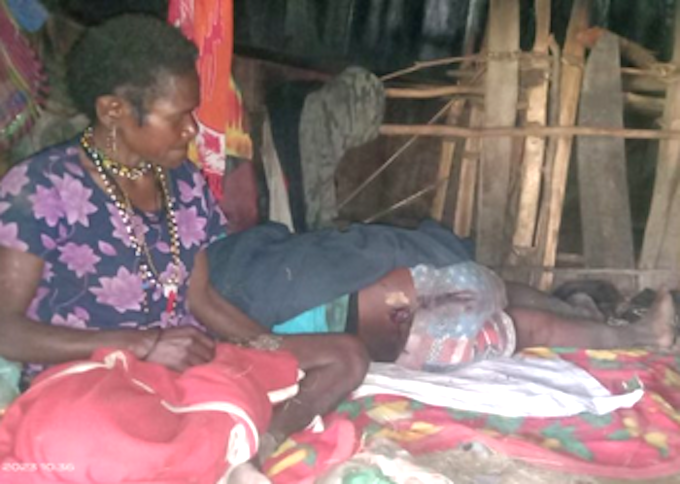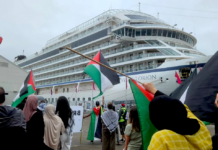A West Papuan leader has accused Indonesia of imposing a “martial law” on the Melanesian region in response to the kidnapping of a New Zealand pilot by rebels fighting Jakarta’s contested rule.
“It is clear that Indonesia is using the kidnap of New Zealand pilot Philip Mehrtens as a pretext to strengthen their colonial hold on West Papua,” said United Liberation Movement for West Papua (ULMWP) interim president Benny Wenda.
Mehrtens was taken hostage on February 7 in the Papuan Highlands and has featured in video demands for independence.
“[Indonesian security forces] are creating and exploiting violence to further depopulate our villages and create easier access to our resources through corporate developments like the Trans Papua Highway.
“This is all part of a 60-year colonial land grab,” claimed Wenda in a statement.
He has appealed for international aid agencies to be allowed to treat victims of forced displacement.
He said that in Intan Jaya, Puncak Jaya, and Nduga, Indonesian soldiers were “roaming the countryside, conducting arbitrary house searches, beating Papuan civilians, and even murdering women and children”.
Papuan shot dead
Wenda said that near Wamena, a Papuan named Stefanus Wilil was shot dead at random while crossing a road.
Last month, a 12-year-old boy, Enius Tabuni, was killed by soldiers who then “mockingly videoed his dead body”.

“Merely days ago, a woman walking back to her village with her husband was stopped, beaten, and then he was shot dead.
“Women and young girls have been raped, churches have been burnt by soldiers, and 16 villages in the Intan Jaya Regency have been abandoned by terrified inhabitants.
“My people are living in mortal fear of the next beating, the next murder, the next massacre.
“Everyone is a target: whether it is because they have a beard or Rasta culture, wearing dirty clothes, or carrying an axe or shovel to tend their gardens — every Papuan is under automatic suspicion.
“Hundreds have been forced to flee their homes by roving military bands acting with total impunity.”
Taking refuge
Wenda said they were taking refuge in the forests, where they lacked food, water, and “basic medical facilities”.
“But even there they are not safe, with armed police occupying every corner of the Papuan countryside, transforming the land into a hunting ground for Indonesian troops.”
Wenda, who lives in exile, said there were parallels with his own childhood experience.
“Seeing my people abused in this way brings up memories of 1977-1982, when I was a child living in hiding in the bush,” he said.
“The Highland operations during this time have been described by the Asian Human Rights Commission as a ‘neglected genocide’.
“Indonesia killed us with guns and bombs dropped from helicopters, but also with malnutrition and crop destruction.
“Even as a child I knew that my life was worthless to the colonial forces. The genocide and ethnic cleansing of West Papua is still neglected, as the massacre of 10 Papuans in Wamena in February proves.”
Up to 100,000 displaced
According to UN figures, between 60,000 and 100,000 West Papuans have been displaced over the past four years.
Wenda said his movement’s peaceful demands to Indonesia were:
- Allow aid agencies to treat victims of forced displacement;
- Allow the United Nations High Commissioner for Human Rights into West Papua, as had been demanded by more than 84 countries;
- Allow international journalists to report on the situation in West Papua;
- Draw back Indonesian troops to allow civilians to return to their lives; and
- Release all political prisoners — including 80 activists who had been arrested for handing out leaflets demanding political activist Victor Yeimo be freed, Victor Yeimo himself, and three students detained without charge last year.
Article by AsiaPacificReport.nz






